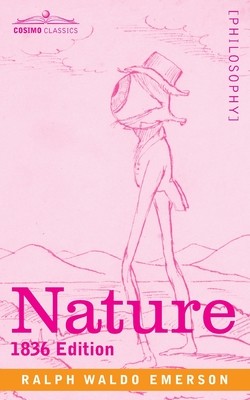
- We will send in 10–14 business days.
- Author: Ralph Waldo Emerson
- Publisher: Cosimo Classics
- ISBN-10: 1646795385
- ISBN-13: 9781646795383
- Format: 12.7 x 20.3 x 0.4 cm, minkšti viršeliai
- Language: English
- SAVE -10% with code: EXTRA
Reviews
Description
"Nature, in the common sense, refers to essences unchanged by man: space, the air, the river, the leaf."
-Ralph Waldo Emerson
Nature (1836) was originally written by Ralph Waldo Emerson as a long essay in which he began to break away from traditional religious and social thinking and formulated the ideas and beliefs that were basic to the philosophy of Transcendentalism. In this essay, Emerson outlined his thinking about the fundamental relationship of man with nature. To many other intellectuals at the time his ideas were revolutionary because he abandoned the popular belief that humanity is separate from and above the rest of the natural world. In 1844, Emerson wrote and published two more series of essays entitled "Nature" in which the implications of this shift are discussed in greater detail.
- Author: Ralph Waldo Emerson
- Publisher: Cosimo Classics
- ISBN-10: 1646795385
- ISBN-13: 9781646795383
- Format: 12.7 x 20.3 x 0.4 cm, minkšti viršeliai
- Language: English English
"Nature, in the common sense, refers to essences unchanged by man: space, the air, the river, the leaf."
-Ralph Waldo Emerson
Nature (1836) was originally written by Ralph Waldo Emerson as a long essay in which he began to break away from traditional religious and social thinking and formulated the ideas and beliefs that were basic to the philosophy of Transcendentalism. In this essay, Emerson outlined his thinking about the fundamental relationship of man with nature. To many other intellectuals at the time his ideas were revolutionary because he abandoned the popular belief that humanity is separate from and above the rest of the natural world. In 1844, Emerson wrote and published two more series of essays entitled "Nature" in which the implications of this shift are discussed in greater detail.


Reviews